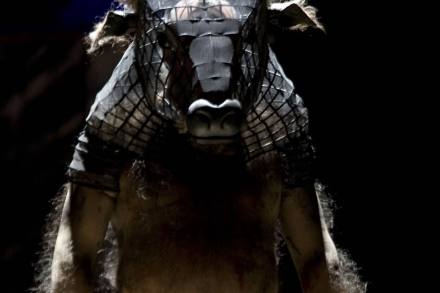Birtwistle’s brilliance
The Minotaur Royal Opera For the first time in the 12 years that I have been reviewing opera weekly, I have been to the first performance of a masterpiece. The Minotaur, so far as I can tell from one intense experience, has all of Harrison Birtwistle’s strengths and none of his weaknesses. He likes to take on big themes, and that leads him to mythology, whether domestic, as in the brilliant early Punch and Judy, or cosmic, as in The Mask of Orpheus and Gawain. Though both those operas have great passages, the former is sunk by prolix pretentiousness, the latter is damaged by diffuseness, even in its revised version.



